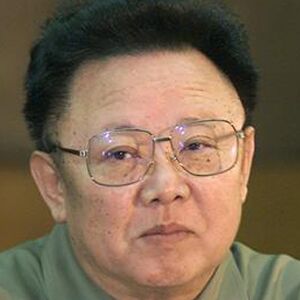
North Korea Shenanigans Outfox White House
North Korea has agreed to close a would-be derelict facility in return for substantial energy aid and diplomatic concessions.
If modern nuclear technology could be compared to an iPod, Yongbyon is a phonograph. The Washington Times reports that North Korea’s main nuclear facility is, in fact, operating nuclear technology that is 50 years old, according to sources who have visited or viewed intelligence on the rogue nation and its nuclear program.
Yongbyon’s decommission was the subject of February talks between North Korea and five nations—the United States, Russia, China, Japan and South Korea. The February 13 agreement made in Beijing promised 1 million tons of badly needed fuel oil, as well as political concessions, to the impoverished state in return for guarantees that it would disable its nuclear program. The Yongbyon facility was supposed to be shut down within 60 days.
Pyongyang might have been on the verge of closing the plant anyway.
The Times reports that the facility is not only antiquated, but is also in a state of disrepair. Walls are crumbling, equipment is rusting, and support facilities have not been well maintained.
Although Washington is happy to extract any nuclear-related promise from Pyongyang, the process has been a diplomatic draw at best, considering the U.S.’s supposed world dominance and North Korea’s fringe recluse status.
Pyongyang not only successfully held out for an extremely large concessions package in February, but also backed Washington down for $25 million frozen in Macao bank accounts, a source of embarrassment for American diplomacy.
The cash was frozen after the U.S. Treasury Department traced it to North Korean counterfeiters of $100 bills and an elaborate international criminal operation. Although President Bush himself stated late last summer that “when you catch people counterfeiting your money, you need to do something about it,” Pyongyang very publicly forced the White House to reverse its rhetoric when it refused to comply with its nuclear obligations unless the money was released. On Tuesday, the American administration consented, allowing the illicit money to be withdrawn by individual account holders with the vague and unenforceable guarantee that it would be used for “humanitarian and education reasons” by the holders—who presumably include the international criminals who laundered it in the first place.
Although Washington has tried to save face, many critics say the reversal has been an embarrassment for the administration. Former United Nations Ambassador John Bolton called the diplomatic event “an image of surrender that is going to be hard to erase.” Relinquishing the money to organizations that have committed fraud “will have a dilapidating effect on bringing sanctions against Iran and other rogue states. It’s a terrible symbol,” he said.
North Korea will miss the deadline to close down its nuclear operations this Saturday, but its chief nuclear negotiator, Kim Kye Gwan, stated Pyongyang could begin complying with its end of the bargain within another 30 days.
